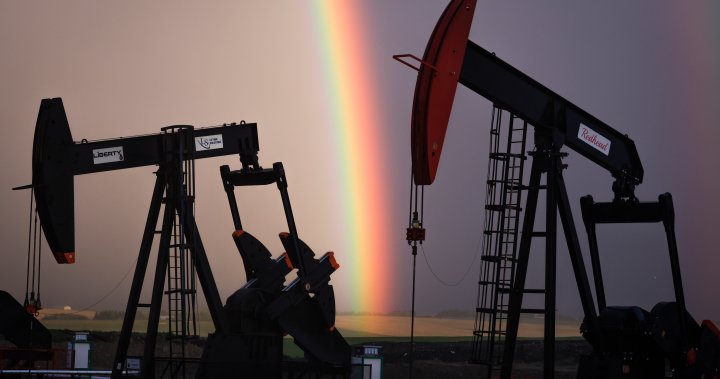
Canada, other countries failing to meet climate change targets: report
Global News
Canada and other major fossil-fuel-producing countries are failing to meet targets to keep climate change in check, a newly released major international report warned Wednesday.
Canada and other major fossil-fuel-producing countries are failing to meet targets to keep climate change in check, a newly released major international report warned Wednesday, putting the world’s energy transition at risk.
The 2023 Production Gap report says the countries are planning to produce 110 per cent more fossil fuels in 2030 than is consistent with keeping global warming to 1.5 C above pre-industrial levels, and 69 per cent more fossil fuels than what’s in line with a 2 C target.
“These plans throw the global energy transition into question. They throw humanity’s future into question. Governments must stop saying one thing and doing another, especially as it relates to the production and consumption of fossil fuels,” wrote Inger Andersen, executive director of the United Nations Environment Programme, in a foreword to the report.
The report – co-produced by the United Nations Environment Programme, Winnipeg-based International Institute for Sustainable Development and several other leading climate groups – comes ahead of the COP28 climate conference later this month in Dubai, where leaders will discuss efforts to curb global emissions.
Of the 20 major fossil-fuel-producing countries profiled in the report, Canada’s planned increase to oil production for 2030, compared to 2021 levels, ranks behind only Brazil, the United States and Saudi Arabia, and just ahead of Russia and Kuwait. Norway and the U.K. were the only two countries projected to decrease both oil and gas production for 2030, according to the report.
By 2030, the United Nations estimates global emissions need to be cut by 43 per cent compared to 2019 levels to keep warming at 1.5 C and to get on a pathway to achieve net-zero emissions by 2050. And while the vast majority of the countries have pledged to hit the net-zero target, the report says none have committed to production cuts in line with a 1.5 C limit.
“Despite governments around the world signing up to ambitious net-zero targets, global coal, oil and gas production are still increasing while planned reductions are nowhere near enough to avoid the worst effects of climate change,” said Angela Picciariello, senior researcher with the International Institute for Sustainable Development.
The 2015 Paris Agreement sets out a global commitment to keep average temperature rise well below 2 C compared to pre-industrial times and aim for 1.5 C. Scientists have said crossing that 1.5 C threshold could unleash some of the most severe climate-change impacts, such as more frequent and severe heat waves.













